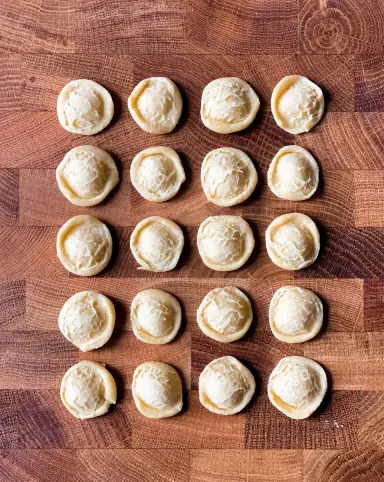30 min
30 min

Cheap knife

Pour the flour on the working surface. Make a pit in the middle and add the water.
Start mixing, each time collecting more flour from the sides of the pile.
Knead the dough until it is smooth and elastic.
Cut a piece of the dough and roll it into a long “snake”.
Cut pieces from the “snake”, a little bit smaller than what you would cut for gnocchi.
Take one piece and a cheap kitchen knife. Hold the knife at a 45-degree angle to your work surface, then press and roll the piece of dough toward you. Unfurl the dough over your thumb in the opposite direction to form a concave shape.
Once you are ready to eat, add the Orecchiette to the boiling water. Once they start to float to the surface, cook them for an additional minute.
Add them to your desired sauce.
YASSS!

write your comment